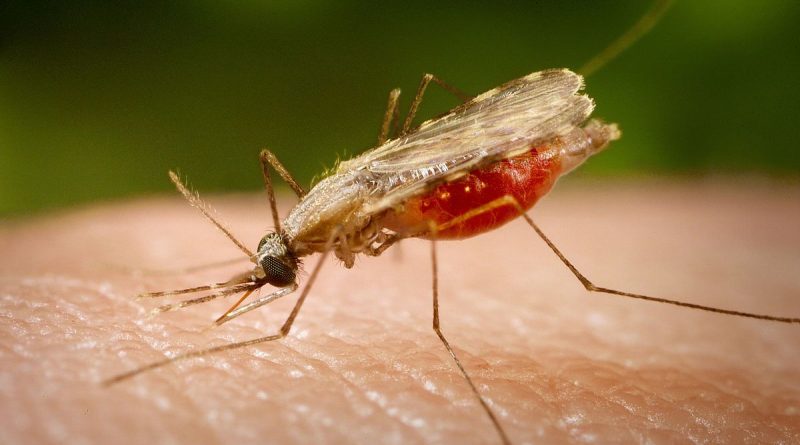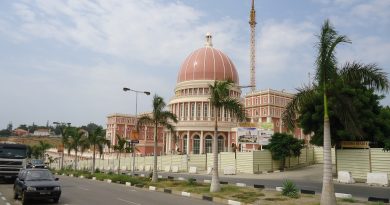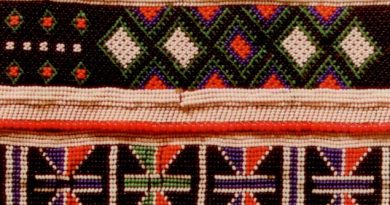CEI-IUL has just published the Ebook’IS “A Malária em Moçambique”
CEI-IUL has just published the Ebook’IS “A Malária em Moçambique: Políticas, Provedores de Cuidados, Saberes e Práticas de Gestão da Doença” (Malaria in Mozambique: Policies, Health Providers, Knowledge, and Disease Management Practices), authored by CEI-IUL researcher Ana Rita Sequeira.
About Ebook’IS
CEI-IUL has a publishing series called Ebook’IS (e-books in International Studies), dedicated to monographs and edited volumes published in digital form. These Ebook’IS are made available in a wide range of reading formats, and are compatible with the main operating systems and electronic devices.
This high-quality peer-reviewed series is an important element in the international diffusion of CEI-IUL’s research, in line with our open-access policy. This series offers researchers the opportunity to publish the results of their investigation within the regional and issue areas covered by CEI-IUL’s research agenda.
About the book
The book “A Malária em Moçambique: Políticas, Provedores de Cuidados, Saberes e Práticas de Gestão da Doença” provides an in-depth portrait of the malaria control programs in Mozambique, the various healthcare providers involved in diagnosis, treatment and health education campaigns, as well as lay people knowledge and practices on how to prevent, diagnose and treat malaria, in a district in Southern Mozambique.
The unique features of this publication (and the research itself) relate to the study of the social phenomenon using a macro, meso and micro-level dimensions to explain individual behaviours and somehow, the adherence to malaria control policies. This ‘kaleidoscopic approach’ focused on a multi-level perspective and its multiple effects on malaria knowledge and practices, and malaria control policies. The book looks into the multiple reflections/effects that arise from multi-level narratives, social structures, power relations and actors.
Using the traditional frontiers of ethnography (open-ended interviews and observation), and following and questing about the lives of individuals and institutions since colonial times, this research answer to questions such as: What are the local interpretations of malaria? How do social structures like kin, religious affiliation, gender and age impact the access to healthcare and malaria diagnosis, prevention and treatment? What are the lay perceptions about various health providers, like traditional healers, biomedical providers and Zion prophet? What’s patients’ experience with malaria diagnosis, prevention and treatment? Just to mention some.
This research draws extensively on ethnographic methods and a fieldwork over four years in Chokwe district, and other towns in Mozambique. The author’s approach is grounded on epistemic communities, by rejecting an epistemic monoculture which outweighs the scientific knowledge over lay knowledge, the biomedical experience over traditional practices, and international evidence and intervention over the local dynamics. The acknowledgement of multiple discourses, hidden actors and conflicting voices taking place in malaria control knowledge and practices, enhances the understanding of the complexities in delivering malaria control activities and changing malaria diagnosis, treatment and prevention behaviours.
The book is organised into nine thematic chapters, plus the introduction and conclusion. Chapter One covers the Methodology and Epistemology, followed by the Chapter Two discussing biomedical perspectives of malaria, from pre-colonial times until recently. Chapter Three draws on the discourses on Biomedicine and allopathic practitioners. After that, Chapter Four examines the local history of care provision, discussing the changing role of various health providers (from colonial time until recently). Chapter Five analyses the Non-Government Organizations (national and international), their role since the civil war (1976-1992) and the perceptions and experiences drawn from lay people, biomedical practitioners and bureaucrats, and traditional healers. This chapter includes four case-studies: Per diem payment between public and non-government institutions, the volatility of non-government institutions, the end of the Lubombo Spatial Development Initiative and the handover to provincial health authorities, and the distribution of bed nets in Chokwe district. Chapter Six provides an overview of the local worldview and how that relates to the identification and classification of malaria as a ‘biomedical disease’, a traditional illness or witchcraft event. This chapter also stresses the non-linear and non-deterministic narratives that arise from the various illness experiences and presents a case study on the introduction of rapid diagnostic test and changes in patients’ behaviours and practices. Chapter Seven examines the role of traditional healers, their profile and journey (from colonial time until recently), as well as their practices and knowledge related to malaria: diagnosis, referral decision-making, cure and how they are perceived by other providers and by the various segments of the community. Chapter Eight draws on the role of religious leaders as healthcare providers, their role in the community, their malaria-related practices and knowledge, and perceptions from community members. The last chapter (Nine) examines the narratives and practices on malaria prevention methods, namely the distribution of bed nets and adherence to indoor residual spraying. The findings of this book reiterate the multiple discourses and practices about malaria, the challenges in accessing healthcare, the power relations among community members and healthcare providers, and its evolving and changing nature.
At last, this book provides a comprehensive portrait of the Mozambican Healthcare System, and it might be useful for health decision makers and planners, health professionals, local government officials, non-government managers, international aid donors, students and curious about malaria and healthcare in Mozambique.
About the author
Ana Rita Sequeira lived an extensive period in rural Mozambique and she was professionally engaged in the delivery of malaria control programs before her decision to be fully dedicated to her PhD project. This book portraits her ethnographic journey among traditional healers, patients and their families, nurses and doctors, donors and bureaucrats. Currently, she is an academic at Murdoch University (Australia) with an active teaching and research roles in the Master of Health Administration, Policy and Leadership. She is also a Research Associate at Center for International Studies (CEI) of the Instituto Universitário de Lisboa (ISCTE-IUL). Currently, her research interests cohere on Global Health and Public Health; health promotion and health policy; critical and interpretative approaches; development studies and how to translate research into practice, bringing together both community perspectives and policy towards health and social development.
Anopheles minimus / Photo by James Gathany | Center for Disease Control and Prevention's Public Health Image Library / Public domain
![]() This work is licensed under a Creative Commons Attribution-NonCommercial-ShareAlike 4.0 International License.
This work is licensed under a Creative Commons Attribution-NonCommercial-ShareAlike 4.0 International License.




